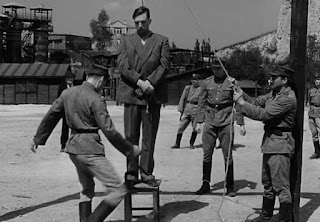Miriam Steiner was just five years old when Nazi Germany and its Axis partners invaded her native Yugoslavia On This Day in 1941.
Miriam Steiner was just five years old when Nazi Germany and its Axis partners invaded her native Yugoslavia On This Day in 1941.
Eventually, Miriam and her parents were arrested. While her father managed to escape, Miriam and her mother, Zora, were forced onto trains bound for Stara Gradiška, a concentration camp administered by Nazi-allied Croatian authorities. Zora was pushed in another direction as Miriam was forced onto a freight car designated for children.
"I start screaming, Mama. Mama. And she turned around, and she saw me, and I saw her. But the next moment, she was gone," Miriam remembered.
For four days, Miriam and the other children were trapped in the dark car unaware of their destination. Not knowing that her mother was unable to reach her, Miriam wondered, "Where is my mother? … Why is she not with me?" When the two eventually reunited at the camp, Miriam barely recognized her mother. The brutal conditions of the camp and their time apart from one another had taken a toll.
“Our relations were never more and never again a relation of a daughter and a mother. ... I don’t remember that I ever said the name ‘Mama’ again. It was something that belonged to another world.”
After about a month, Miriam's father, Bela, secured their release from Stara Gradiška. Miriam and her parents survived the Holocaust in Italy. Eventually, Miriam immigrated to Israel, where she married and had a daughter of her own.
“Only many years later, … when I myself became a mother, that only then, I could really with all my heart, and with all my openness, say again ‘Mama.’”
Photo: USHMM, courtesy of Miriam Steiner Aviezer













Comments
Post a Comment